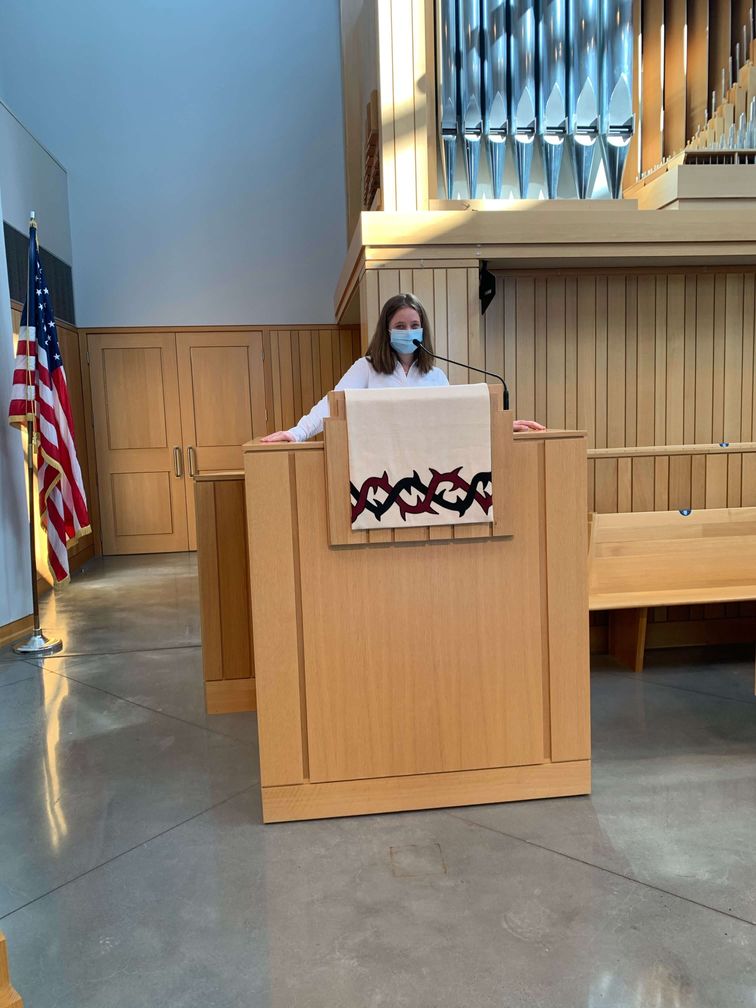Brendan Schlitt ‘24
Colin Schlitt ‘24
Ronak Nagar ‘24
Senior speeches, a tradition since the 1960s at Episcopal, provide an opportunity for seniors to articulate a lesson through their personal experiences, and also for the greater community to benefit and learn from their insights.

Photo courtesy of aasu.ea Instagram
According to Head School Chaplain Father Tim Gavin, senior speeches “allow students to reflect on their experience within an ethical, spiritual, or personal framework and share their newfound insights with the community.” Although underclassmen and juniors are not barred from giving a speech, seniors are specifically “invited in the late spring of their junior year to consider giving a senior speech” and are given additional encouragement throughout the year to do so.
Many seniors are excited to take this opportunity, as it allows them to step out of their comfort zones. Sona Bardakjian ‘21, inspired by her sister’s speech in 2019, spoke about the Armenian Genocide, the recent conflicts in Armenia, and the longterm effects of the genocide. Bardakjian explains what motivated her to speak, “I always knew I wanted to give a speech about my culture and heritage, and in light of the recent events, I thought it would be the perfect time to educate my peers and teachers about a topic that is so near to my heart.”
Similarly, Tracy Rosenberg ‘21 reflects upon how past speeches empowered her to speak in Chapel, explaining, “When I was a freshman I heard two seniors at the time (Bridget Boyle ‘18 and Adelynn Anderson ‘18) speak about being a lesbian and bisexual respectively. Honestly if it weren’t for them, I wouldn’t have done my speech.”
Like Rosenberg, Tony Thomas ‘21 was commended by his classmates and teachers for his bravery to open up about “appreciating the value of slowing down to take time for yourself, and engaging in some self-reflection.” However, he encountered difficulties in the writing process. Thomas notes, “My biggest struggle when writing a speech was that I had to strike a balance between what I was comfortable sharing in front of the Chapel and what was actually impactful enough to resonate with someone.”
Although speeches can be daunting to write and present, they impart a unique opportunity to conclude their experience at Episcopal. Topics of each individual speech vary, but Gavin states that “the content must have some spiritual entity, which is loosely interpreted. It could include one’s journey to self-discovery, a reflection on an ethical or moral dilemma, a tribute of gratitude to others, a service experience, or anything to do with one’s faith journey or faith tradition.”
Bardakjian emphasizes the importance and value of senior speeches, “Senior speeches allow us to open up and talk about anything we want, and is such a great opportunity to showcase the things we care about most, things we never got to talk about, or give advice to essentially a younger version of ourselves.”
She also comments on how self-fulfilling the experience was for her, “I felt like I was making my family and ancestors proud, especially about educating people on a lesser known historical and current event. That’s been one of my biggest goals since coming to EA and after the speech, I felt like I accomplished a part of that goal.”
Rosenberg encourages this sentiment, advising, “If you’re an upperclassman and you believe you have something to say––write a speech!” Thomas agrees, “The process of delivering a senior speech is something you’ll never forget, and you don’t want to live the rest of your life regretting something you did or didn’t say.”